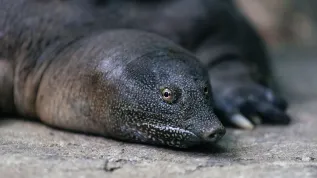
Nitrogen pollution leads to a decline in the diversity of plants that fix atmospheric nitrogen, according to research by an international team of scientists, including Polish researchers.
The results of the research proving that not only climate change causes a decline in plant species diversity were published in the journal Science Advances (https://www.science.org/doi/10.1126/sciadv.adp7953).
Scientists analysed trends in the diversity of nitrogen-fixing plants and their relationships with nitrogen accumulation resulting from human activity. The researchers used data from vegetation surveys in temperate forests in Europe and the United States covering many decades.
'The species diversity of nitrogen-fixing plants has not increased over time, on the contrary, it has decreased. This reverse trend was associated with anthropogenic environmental pollution with nitrogen', says the paper’s co-author Professor Bogdan Jaroszewicz from the Białowieża Geobotanical Station of the Faculty of Biology at the University of Warsaw.
The scientists observed that, contrary to expectations, the increase in temperature and the increase in the degree of soil drying did not lead to an increase in the species diversity of nitrogen-fixing plants. 'These factors did not explain the observed changes in the species richness of this functional group of plants', Jaroszewicz says.
The research results suggest that nitrogen pollution leads to a decrease in the species diversity of plants that fix atmospheric nitrogen.
‘Anthropogenic pollution leads to the appearance of excess nitrogen in the environment, as a result of which plants capable of fixing atmospheric nitrogen lose their competitive advantage over plants that use only nitrogen present in the soil. This process leads not only to a general reduction of biodiversity, but also to the loss of ecosystem services provided by nitrogen-fixing plants’, says Professor Jaroszewicz. (PAP)
Urszula Kaczorowska
uka/ agt/ kap/
tr. RL













